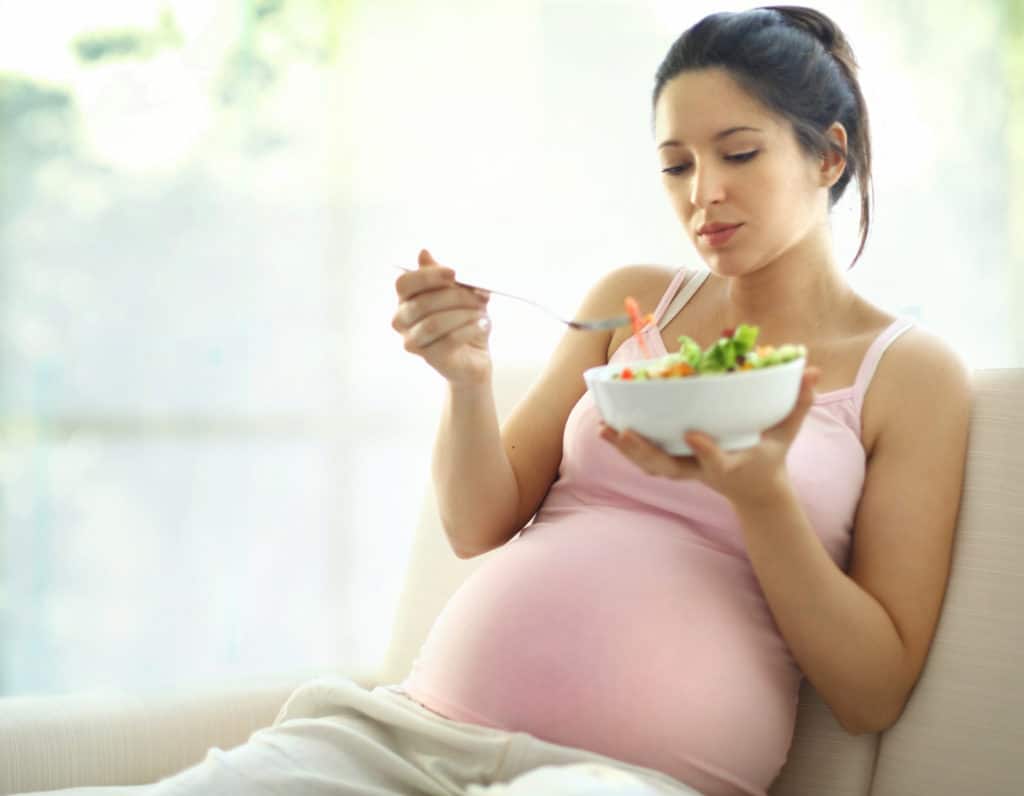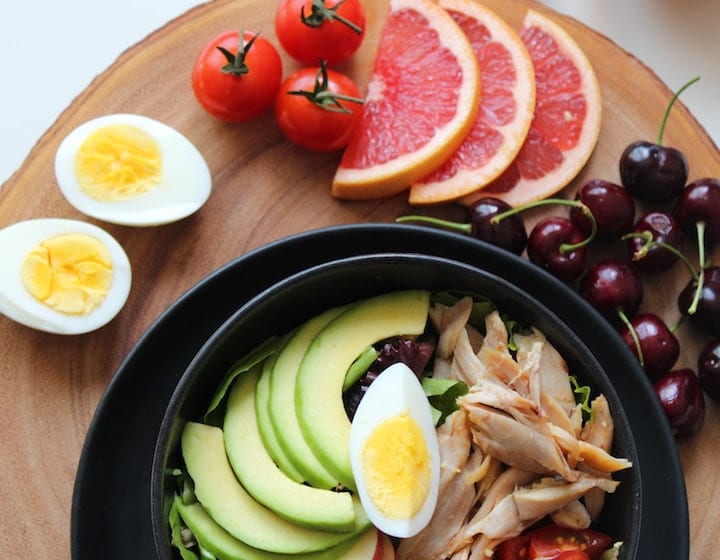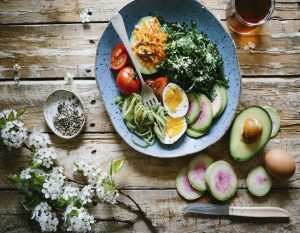
 Post Category - ExpertsExperts - Post Category - Health & FitnessHealth & Fitness
Post Category - ExpertsExperts - Post Category - Health & FitnessHealth & Fitness Post Category - MamaMama - Post Category - Health & FitnessHealth & Fitness
Post Category - MamaMama - Post Category - Health & FitnessHealth & FitnessTop midwife tips to keep you and your bump healthy.
As soon as you get that positive pregnancy test result, the list of what you should and shouldn’t do seems to grow quicker than your baby bump! When it comes to eating and drinking there are many rules and opinions. We decided to get the midwives at Urban Hatch to share their top dos and don’ts of pregnancy nutrition.
Read more: How To Have An Eco-Friendly And Green Pregnancy
The Dos Of Pregnancy Nutrition

 Do Enjoy Food And Your Pregnancy
Do Enjoy Food And Your Pregnancy
It is important to eat well during pregnancy but it is equally important to enjoy this special time with your bump! Think about what you eat but try not to worry too much about all the overwhelming advice; find what works for you. Make healthy choices including good amounts of high fibre foods, fruits and vegetables and lean protein. And don’t forget to wash it all down with plenty of water, at least 6 to 8 glasses (200mls) a day and more in hotter weather. Keeping it healthy doesn’t mean you have to go without an occasional treat but make sure not to overindulge in sugar, saturated fat and processed treats such as cookies or chocolate. These will put you on a sugar rollercoaster which isn’t as fun as it sounds!
 Do Supplement
Do Supplement
Taking a prenatal vitamin is a good way to ensure you get enough of the key elements to support your body and growing baby. Start taking this as soon as you find out you are expecting. Even when you are trying for a baby, it is a good idea to start taking a supplement — most importantly folate. Certain gene variants can affect how folic acid is metabolised. Talk to your doctor or midwife about getting the right supplements. You can find more information about folate and folic acid in this article by Dr Benita Perch. There are many brands of prenatal vitamins out there to choose from but the evidence shows that all are effective and the more expensive options are not superior. Whichever you choose make sure that they are specifically formulated for pregnancy.
Read more: Pregnancy Nutrition: Where To Get Prenatal Vitamins In Hong Kong

 Do Prepare Yourself With Knowledge (About Foods To Avoid)
Do Prepare Yourself With Knowledge (About Foods To Avoid)
Unpasteurised dairy products like uncooked soft cheeses are best avoided. These may contain a bacteria called listeria which can be harmful. Also avoid cured meats, liver and liver products such as pâté, undercooked eggs, meat or raw fish. The best way to avoid this risk is to check food labelling at home and to ask servers in restaurants about their ingredients. Oily fish is a great way to get your omega-3 fats, however, limit your intake to two portions a week. Tuna fish should also be limited to two portions a week. This is to avoid possible pollutants and mercury respectively.
 Do Listen To Your Body
Do Listen To Your Body
Some pregnancy symptoms can be tough to manage, such as sickness, vomiting and constipation. In early pregnancy, sickness and vomiting can make nutrition a challenge. If certain foods make you feel queasy just eat what you can to feel comfortable, there may be some days when this means you want potato chips for breakfast! Go ahead and have those chips, but try to drink plenty of fluids and take your prenatal vitamin. It is better to eat something rather than feel sick and unable to carry out your daily activities.
Constipation can cause a lot of discomfort and pain and is caused by hormonal fluctuations and your growing baby making less room for your digestive system. Try to prevent constipation by making sure you have plenty of fibre-rich foods every day as well as plenty of water. Fibre can be found in whole grains, vegetables, fruit, seeds and nuts. Starting your day with a cup of warm water with slices of lemon or grapefruit can do wonders for your digestive system and set you up for a great start to the day.
Read more: Five Whole Foods To Help Reduce Pregnancy Swelling
The Don’ts Of Pregnancy Nutrition

 Don’t Consume Too Much Caffeine
Don’t Consume Too Much Caffeine
Starting your day with a cup of coffee or tea is a ritual many of us enjoy! Just because you have a baby on board doesn’t mean you have to skip this. However, limiting your caffeine intake is important; you need to aim for no more than 200mg a day. Now, this is where it can get a bit confusing. Caffeine can also be found in cola and chocolate. Keep the following in mind when planning your day:
- 100mg in a mug of instant coffee and 140mg in a mug of filter coffee
- 75mg in a mug of tea (green or black)
- 40mg in a can of cola (and some other fizzy drinks)
- less than 25mg in a 50g bar of plain dark chocolate and less than 10mg in a 50g bar of plain milk chocolate
 Don’t Drink Alcohol
Don’t Drink Alcohol
This is a tricky one, as experts currently do not have enough evidence about how much alcohol (if any) is safe when you are expecting. The advice you will see online varies across the world. The simplest way to navigate this is to try alternatives such as mocktails or alcohol-free beer. Just keep an eye out for the sugar content in soft drinks! Don’t worry if you didn’t know you were pregnant and have already consumed alcohol — many women have done so and have had healthy pregnancies and babies!
 Don’t Get Overwhelmed By Advice
Don’t Get Overwhelmed By Advice
There will be no shortage of well-meaning friends and family offering advice, at times it will be useful and there will be moments when it is overwhelming. Only you know what will make you comfortable and happy, so follow your instinct! And if you have any doubt about what to eat or what to avoid, speak to your healthcare professional.
Read more: Giving Birth In Hong Kong: Public Vs Private Hospital Options
 View All
View All


 View All
View All


 View All
View All

 View All
View All


 View All
View All








